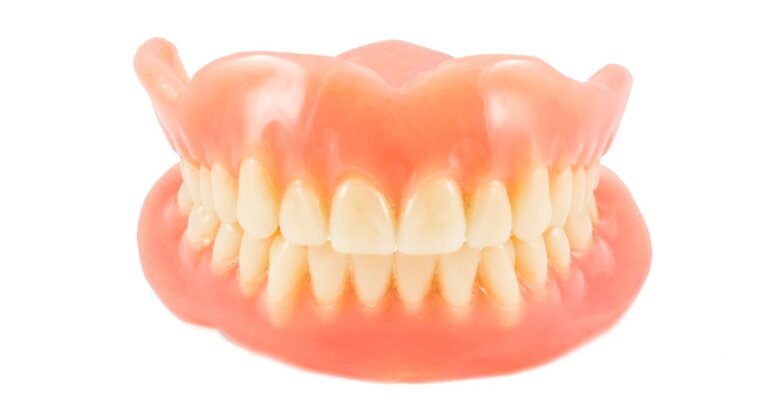Denture Post-Insertion Instructions

Denture Post-Insertion Care: Essential Tips for Comfort and Longevity
Getting used to new dentures can take some adjustment, but following proper care and maintenance steps will help ensure a smooth transition. Here’s everything you need to know about caring for your new dentures, keeping them clean, and making sure they last.
Proper Oral Hygiene with Dentures
To maintain your oral health with dentures, it’s crucial to keep your dentures, gums, and any natural teeth clean.
Cleaning Your Dentures
- Daily Denture Cleaning: Remove your dentures daily and clean them using a denture cleaner. We recommend using an ultrasonic cleaner, such as the Debatlog Ultrasonic Cleaner, with Polident Daily Denture Cleaner solution. This will help remove biofilm and reduce the risk of bacteria buildup.
Oral Hygiene
- Teeth Brushing Routine: Brush your dentures, gums, and any remaining teeth at least twice a day, ideally after meals. Use a soft-bristled toothbrush, like the Curaprox CS5460 Ultra Soft Swiss Toothbrush, to prevent gum irritation. You may also consider an electric toothbrush, like the Philips Sonicare ProtectiveClean 6100, for a more thorough clean.
- Mouthwash and Rinsing: When brushing isn’t possible, rinse your mouth with water or an antibacterial mouthwash, such as Colgate Total 12HR Pro-Shield CPC Mouthwash, to remove food particles that can get trapped and cause decay or gum disease.
- Floss Daily: Use regular dental floss, interdental brushes (like GUM Proxabrush), or flossers to remove plaque around any natural teeth. For ease, you may want to use GUM ButlerWeave Dental Floss or Sunstar GUM Advanced Care Flossers.
- Water Flosser: A water flosser, such as the Waterpik Aquarius Water Flosser, can be a helpful addition to your routine, flushing out food particles and plaque missed by brushing and flossing. Aim to use it at least once daily.
- Fluoride Toothpaste: Use fluoride toothpaste to protect against cavities and gum disease. We recommend Colgate Total Advanced Professional Clean Toothpaste for a comprehensive clean.
Adjusting to Your New Dentures
Wearing dentures takes some getting used to, and it’s common to experience mild discomfort as your mouth adjusts. Follow these tips to make the transition easier:
- Start Gradually: Practice wearing your dentures for short periods throughout the day, gradually increasing wear time as they become more comfortable.
- Monitor for Fit and Comfort: If you experience persistent soreness, pressure points, or looseness, schedule an adjustment with your dentist to ensure a proper fit.
Maintaining Regular Dental Visits
Regular dental checkups are essential to keep your dentures and oral health in top shape. Your dentist will:
- Check for Gum Health: Healthy gums are critical for a secure denture fit. Any signs of gum disease, like swelling or bleeding, may require treatment to prevent discomfort or complications.
- Inspect for Cavities or Sensitivity: If you still have natural teeth, regular cleanings and exams will help prevent cavities that can lead to pain or sensitivity under your denture.
- Adjust and Clean Dentures: Bring your dentures to every visit for any necessary adjustments and professional cleanings.
Managing Discomfort and Adjustments
It’s normal to experience some initial discomfort with new dentures, but persistent issues shouldn’t be ignored. Here are common denture challenges and tips for addressing them:
- Sore Spots: If you develop sore spots, try rinsing with warm salt water to soothe the area. Avoid wearing dentures for prolonged periods if they’re causing pain, and consult your dentist for adjustments.
- Difficulty Speaking or Eating: Practice speaking with your dentures in by reading aloud, which can help improve speech clarity. Start with soft foods and cut them into small pieces to adjust gradually to chewing.
Long-Term Denture Care and Maintenance
- Soak Overnight: Remove your dentures and soak them in a denture solution or plain water overnight. This keeps the material moist, preventing warping.
- Avoid Abrasive Cleaners: Stick to denture-specific cleaning solutions, as regular toothpaste and harsh cleaners can scratch the surface, encouraging bacterial buildup.
- Handle with Care: Avoid dropping your dentures by placing a towel or water in the sink while cleaning them.
- Avoid Hot Water: Heat can warp the shape of your dentures, so always use lukewarm water for cleaning or rinsing.
- Regular Check-ups for Fit: Dentures may become loose over time as your mouth’s shape changes. Regular dental appointments allow for timely adjustments or replacements to keep them fitting comfortably.
Have Questions?
If you have additional questions about your dentures, contact us at Atlas Dental. We’re here to help ensure your denture experience is as comfortable and long-lasting as possible.

